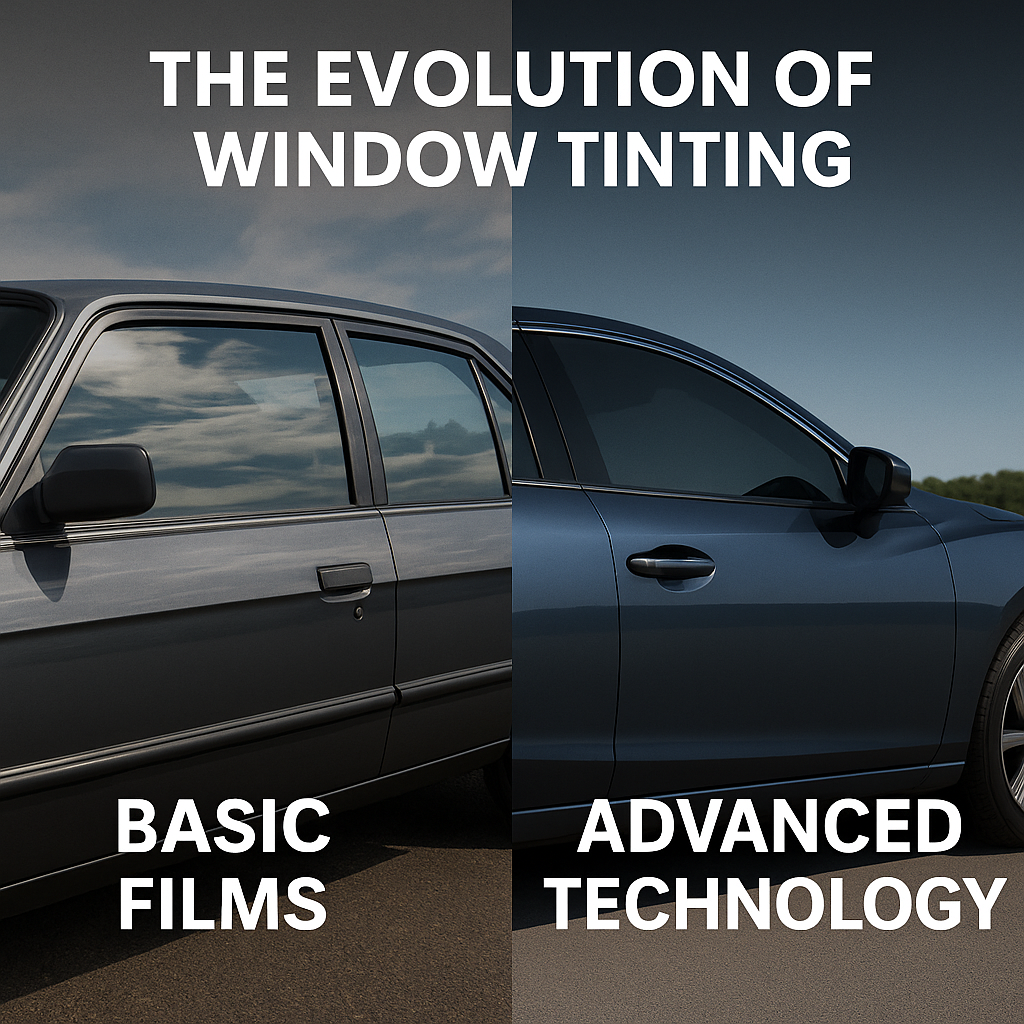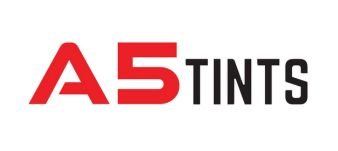Window Tinting Technology Exposed: Myths Behind the Evolution
- Home
- Window Tinting Technology Exposed: Myths Behind the Evolution
-
By: a5tint
- 0 Comments
Window tinting has transformed dramatically over the decades. What started as a simple dyed film for style and privacy in the 1960s has now evolved into a high-tech solution that offers UV protection, heat rejection, energy efficiency, and safety benefits.
The evolution of window tinting reflects innovation in material science, consumer demand, and environmental awareness. At A5Tint
we specialize in providing modern, high-quality tinting solutions that combine aesthetics with performance.
The Early Days: Dyed Window Films
In the 1960s, dyed window films entered the automotive industry. They provided privacy and a darker look but came with serious limitations:
Low durability (fading and bubbling over time)
Weak UV protection
Minimal heat rejection
While they offered an affordable start, these films were more cosmetic than functional.
(Learn more about glass and vehicle safety at Transport Canada – Glass and Glazing Materials
The Rise of Metalized Films
In the 1970s and 1980s, manufacturers introduced metalized window films. By layering metal particles into the film, these products greatly improved heat rejection and durability.
Key Advantages:
Stronger UV and heat protection
Increased glass strength
More reflective surface
Drawbacks:
Metallic appearance that some found unattractive
Possible interference with mobile, GPS, and radio signals
we’ve seen how customer needs shifted from basic looks to functional tinting solutions.

Hybrid Films: A Balanced Solution
The 1990s introduced hybrid window films, which blended dyed and metalized layers. This balance offered aesthetic appeal with improved performance.
They reduced the reflective look of pure metalized films while offering:
Better heat rejection
More durability
Lower fading
Hybrid films marked a turning point in the evolution of window tinting, preparing the industry for even more advanced technology.
The Modern Era: Ceramic Window Tinting
Today, the most advanced option is ceramic tinting technology. Unlike dyed or metalized films, ceramic films use nanoceramic particles that are non-metallic and non-conductive.
Benefits of Ceramic Films:
Blocks up to 99% of harmful UV rays
Superior heat rejection without dark shades
No interference with radio, GPS, or mobile signals
Improved safety by reinforcing glass
Long-lasting, fade-resistant durability
(Learn more about UV radiation safety at Government of Canada – Sun Safety
we offer cutting-edge ceramic tint solutions designed to protect both drivers and passengers.
Window Tinting and Energy Efficiency
Modern window tinting is about more than style—it’s about sustainability. By reducing the need for constant air conditioning in summer and preserving warmth in winter, window tinting lowers energy use.
This eco-friendly benefit aligns with Natural Resources Canada – Energy Efficiency
Common Myths About Window Tinting
Myth 1: Darker films = better performance
Fact: Modern ceramic films block UV and heat effectively without needing to be dark.
Myth 2: Tinting reduces visibility
Fact: Advanced films reduce glare and enhance clarity, especially at night.
Myth 3: Tinting is only for cars
Fact: Window tinting applies to homes, offices, and commercial buildings. Visit A5Tint Commercial Tinting
The Future of Window Tinting
The evolution of window tinting is far from over. Innovations include:
Smart tinting that adapts to sunlight levels
Electrochromic films for instant tint adjustment
Eco-friendly, recyclable materials for sustainability
As technology grows, so will the demand for safer, greener, and more efficient solutions.
To explore the latest technology, visit our About A5Tint
Conclusion
From basic dyed films of the 1960s to today’s nanoceramic tinting, the evolution of window tinting shows how far the industry has come. What started as a style choice is now a must-have solution for comfort, safety, energy efficiency, and sustainability.
At A5Tint we’re proud to offer advanced tinting services that meet modern demands and prepare for the future. Whether you need automotive, residential, or commercial tinting, we provide solutions that go beyond style—bringing you lasting protection and performance.
